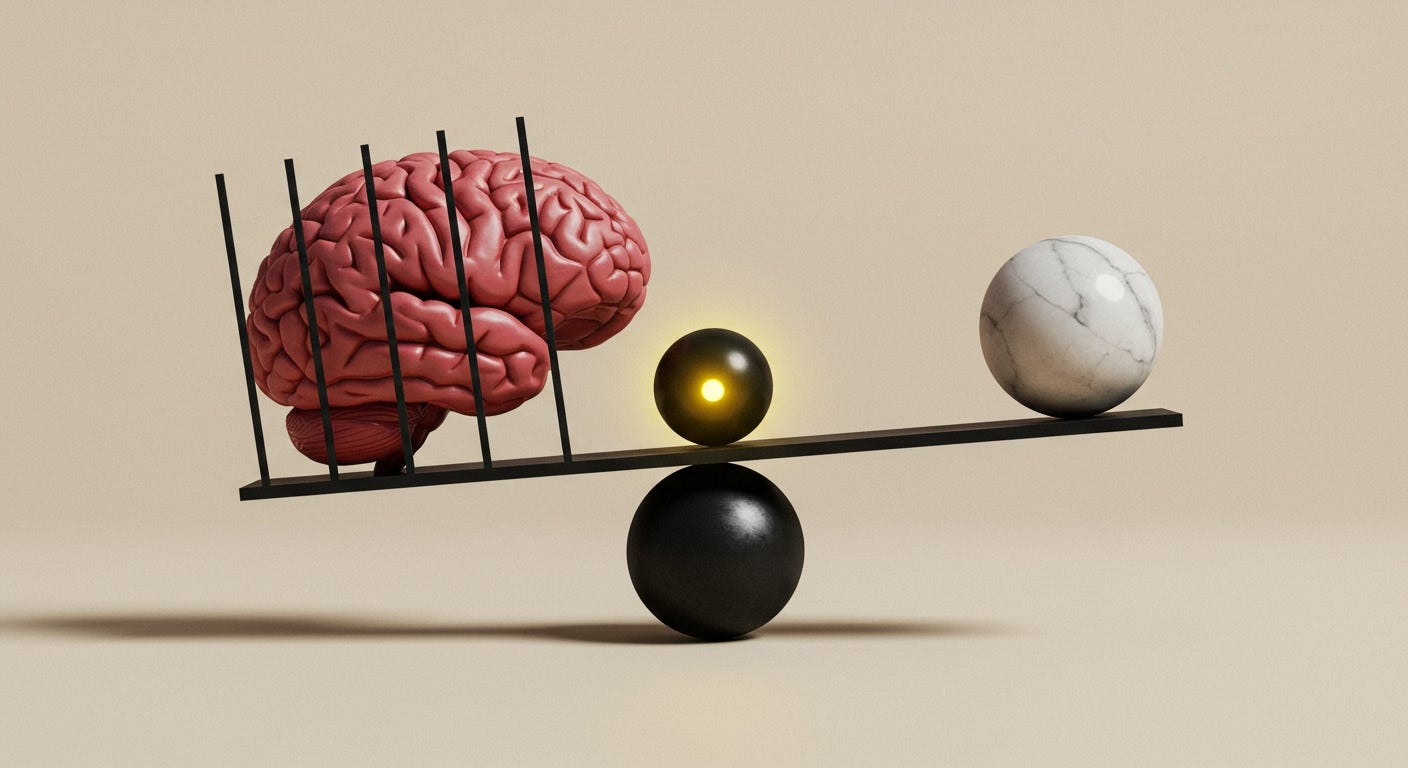Can We Truly Be Rational Anymore?
Navigating Our Confusing Modern World
Feel like the world's gone mad? In this week's newsletter, I explore how we can stay rational when everything around us feels anything but. We'll dive into surprising insights from behavioral science, unpack the historical debate between pure reason and messy reality, and, most importantly, equip you with practical tools to sharpen your thinking and make better decisions in your everyday life. It’s time to understand our own minds better.
Can We Even Be Rational Anymore? A Personal Reflection on Modern Dilemmas
Have you ever felt like the world is constantly throwing curveballs, defying all logic and reason? It’s a common feeling. We’re often told to be rational, to think logically, to make decisions based on cold, hard facts. But then we watch events unfold, from personal squabbles to global headlines, that seem utterly disconnected from any semblance of sense. This disconnect begs a fundamental question: In a world that often feels deeply irrational, how do we—how do *you*—find and apply genuine rationality? Let’s dive into what it really means to think clearly when chaos seems to be the default.
Unpacking Our Mental Shortcuts: What Science Really Says About How We Think
The truth is, our brains are wired for efficiency, not always for perfect logic. Think about all those snap judgments you make, those gut feelings that guide your day. Modern behavioral science, especially the groundbreaking work of psychologists like Daniel Kahneman and Amos Tversky, has illuminated just how much our thinking is shaped by mental shortcuts—what they call 'heuristics'—and cognitive biases. We’re prone to seeing what we want to see (confirmation bias), letting initial numbers disproportionately influence us (anchoring), and being swayed by how information is framed. It’s not a flaw, per se, but an ingrained aspect of being human. As Daniel Kahneman famously put it:
"The confident man who thinks he knows everything is often the one who knows the least."
– Daniel Kahneman
He means that often, our intuitive, fast thinking (System 1) can lead us astray, especially when we're overconfident in its judgments. Understanding these mental quirks isn't about shaming ourselves; it's about gaining critical self-awareness.
The Grand Debate: Enlightenment Ideals vs. Our Messy Reality
For centuries, we’ve held onto this beautiful idea, born from the Enlightenment, that humans are fundamentally rational creatures, capable of pure logic. This was the driving force behind many of our institutions, from economics to law. The ideal was a world governed by reason. But then, modern psychology and neuroscience came along and threw a wrench in the works. They showed us that our emotions, our social connections, and even our evolutionary history often override that cold, hard logic. It reminds me of the philosopher David Hume’s provocative insight:
"Reason is, and ought only to be the slave of the passions, and can never pretend to any other office than to serve and obey them."
– David Hume
He argued that our emotions are the primary drivers, and reason merely helps us achieve what our feelings desire. So, where does that leave us? It's not about giving up on reason, but about understanding its boundaries. It's a journey of self-awareness, not self-condemnation. The synthesis isn't to declare ourselves doomed to irrationality, but to recognize that true rationality emerges from a conscious effort to navigate, rather than deny, our inherent biases and emotional landscape.
Why This Matters More Than You Think (Especially Now)
When you grasp how deeply irrationality is woven into our fabric, you start seeing the world differently. It’s not just academic – it’s about making smarter personal finance decisions, building more resilient relationships, and understanding why political divides feel so intractable. Recognizing that others, and even you, are prone to predictable 'irrational' behaviors is a superpower. It allows you to anticipate pitfalls, design better communication, and build systems that account for human nature, rather than fighting against it. This understanding isn't just theory; it's a practical framework for navigating the noise and complexity of modern life.
Your Toolkit for Sharper Thinking: Navigating the Noise
So, what can *you* do to cultivate sharper thinking in this often-confusing world? First, practice 'slow thinking'—deliberately pause before reacting or making a big decision. Question your first instinct, especially when it feels incredibly strong. Second, actively seek out people who disagree with you respectfully. Diverse perspectives are crucial for challenging your own biases. Third, create 'pre-mortems': before embarking on a plan, imagine it's failed and work backward to understand why. This helps you foresee pitfalls. Understanding our inherent irrationality isn't a surrender to chaos, but a vital first step towards cultivating more deliberate and effective reasoning. It's about building a toolkit for more robust, considered thinking.
Go Deeper
Step beyond the surface. Unlock The Third Citizen’s full library of deep guides and frameworks — now with 10% off the annual plan for new members.
Embracing the Nuance of Our Minds
The journey toward greater rationality is an ongoing one, filled with fascinating discoveries about ourselves. It's about embracing the complexity of the human mind, rather than fighting it. By acknowledging our limits and working with them, you can move beyond simple, often flawed, assumptions and toward a more nuanced, effective, and truly rational way of engaging with the world. Let’s keep exploring these fascinating frontiers of human understanding together.




The gifts of evolution are: irrationality, destructiveness, stupidity, emotionality, and sometimes we use reason.